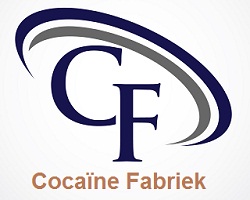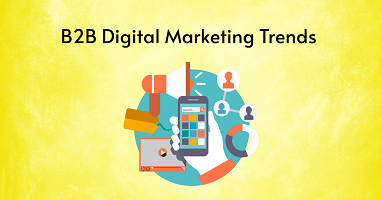Advanced B2B Marketing Strategies for Benzodiazepine Sales
As the pharmaceutical landscape continues to evolve, the necessity for innovative and effective B2B marketing strategies becomes paramount, especially in the domain of benzodiazepine sales. Incorporating advanced marketing techniques can significantly enhance market penetration, customer retention, and ultimately, sales efficiency. Among these strategies, targeted content marketing, account-based marketing (ABM), and leveraging social media networks are pivotal.
Targeted content marketing involves the creation and distribution of valuable, relevant, and consistent content to attract and engage a clearly defined audience. For benzodiazepine sales, this approach ensures that healthcare providers and pharmaceutical stakeholders receive informative, scientifically backed content that underscores the efficacy and safety of benzodiazepines.
Account-based marketing (ABM) is another powerful strategy that focuses on high-value accounts. With ABM, marketing efforts are tailored to meet the specific needs of individual clients, resulting in more personalized communication and higher conversion rates. This approach is particularly beneficial in the pharmaceutical industry where decision-making involves multiple stakeholders and a high degree of scrutiny.
Additionally, leveraging social media platforms for B2B marketing cannot be overlooked. Platforms like LinkedIn allow pharmaceutical companies to connect with industry professionals, share updates, and engage in thought leadership. By maintaining an active presence, companies can build brand authority and keep their audience informed about new developments in benzodiazepine research and production.
Envisioning the Future of B2B Marketing in Benzodiazepine Sales
The future of B2B marketing in benzodiazepine sales is poised for transformative changes driven by technological advancements and shifting industry dynamics. As companies strive for more efficient and effective marketing techniques, several trends are expected to shape the future landscape.
One significant trend is the growing emphasis on data-driven marketing. With the proliferation of big data and advanced analytics, pharmaceutical companies can gain deeper insights into customer behaviors, preferences, and trends. This intelligence allows for more personalized and targeted marketing campaigns, ultimately enhancing engagement and driving sales.
Another critical trend is the rise of artificial intelligence (AI) and machine learning (ML) in marketing processes. AI and ML algorithms can analyze vast amounts of data, predict outcomes, and optimize marketing strategies in real-time. For benzodiazepine sales, AI can identify the most promising leads, forecast market demand, and streamline the entire sales funnel.
Furthermore, the increasing importance of compliance and ethical marketing practices will shape the future of B2B marketing. As regulations become stricter, pharmaceutical companies must adhere to stringent guidelines to ensure transparency, accuracy, and ethical considerations in their marketing efforts.
The Impact of Technology on Benzodiazepine Sales and Marketing
Technology plays a pivotal role in shaping benzodiazepine sales and marketing strategies. From customer relationship management (CRM) systems to advanced analytics and artificial intelligence, technological innovations are transforming how pharmaceutical companies operate, interact with clients, and achieve business objectives.
CRM systems are at the forefront of this technological evolution. By centralizing customer information, these systems enable sales teams to manage relationships more effectively, track interactions, and identify opportunities for upselling and cross-selling. For benzodiazepine sales, a robust CRM system ensures that all customer-related data is accessible, organized, and actionable.
Advanced analytics is another transformative technology impacting benzodiazepine sales. By analyzing historical data and current market trends, analytics tools provide actionable insights that inform strategic decisions. Companies can predict demand, optimize inventory, and tailor marketing campaigns to specific customer segments, ensuring a more targeted and efficient approach.
Artificial intelligence and machine learning are also revolutionizing B2B marketing in the pharmaceutical industry. These technologies facilitate predictive analytics, automate routine tasks, and enhance customer interactions through chatbots and personalized communication. In benzodiazepine sales, AI-driven insights can optimize pricing strategies, identify high-potential leads, and improve overall marketing effectiveness.
Moreover, digital transformation initiatives are reshaping the way pharmaceutical companies engage with their clients. Virtual meetings, webinars, and digital marketing campaigns have become essential tools in the B2B marketing arsenal. These digital channels enable companies to reach a broader audience, share educational content, and foster long-term relationships with key stakeholders. Buy ativan lorazepam online.
Embracing the Future of B2B Marketing in Benzodiazepine Sales
As we look ahead, the future of benzodiazepine sales through B2B marketing holds immense potential driven by technological advancements and innovative strategies. By embracing data-driven marketing, leveraging AI and machine learning, and adhering to ethical standards, pharmaceutical companies can navigate the evolving landscape and achieve sustained growth.
The integration of advanced technologies such as CRM systems, analytics tools, and AI-powered solutions will undoubtedly enhance marketing efficiency and effectiveness. Furthermore, the shift towards digital transformation and virtual engagements will continue to redefine how companies interact with their clients and stakeholders.
In this dynamic environment, staying ahead of the curve requires a proactive approach to adopting new technologies and refining marketing strategies. Pharmaceutical companies that invest in these areas will be well-positioned to drive benzodiazepine sales, foster strong relationships with healthcare providers, and maintain a competitive edge in the market.

